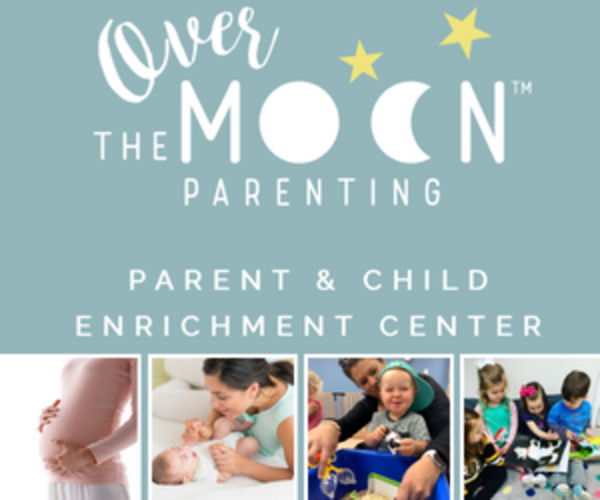When someone finds out I am a dentist, they may hesitate before they ask me their dental question, but they soon figure out I love answering questions about teeth! And I really love to talk about baby teeth. When I first started out as a pediatric dentist, one of the most common questions I heard was, “Baby teeth are going to fall out anyway, why worry about them?”. I am relieved that I rarely ever get this question any more. In fact, I get a TON of questions about baby teeth - how to care for them and how to prevent cavities and other dental issues. In honor of dental health month, I’ve compiled a list of frequently asked questions. As you will see, I really do love talking about teeth!
When should I brush my baby’s teeth?
First, I cannot stress this enough - brush and floss in front of your babies and toddlers as often as possible. Children love to mimic parents; if they see you use good oral hygiene techniques, they will eventually do so as well. Start brushing your child’s teeth as soon as you see his or her first tooth. We recommend a soft bristle toothbrush as it is the most effective tool for removing plaque. Now, brushing a baby and/or toddler’s teeth can be tricky. I’ve certainly learned this with my own two children. Many children will cry and resist brushing, this is very normal, and parents shouldn’t worry that they are hurting their child as long as they are using a soft bristle toothbrush and good technique.
An infant oral health visit is a great time to review effective brushing techniques. I often recommend brushing after bath time on the changing table when the child is wrapped snugly in their towel. Brushing my own son’s teeth was a bit of a WWE experience until about two months ago, when he was two and ten months. Now he loves brushing (though it might be because he sees it as an excellent way to delay bedtime!).
Finally, we advise parents to brush their children’s teeth until their children have the dexterity to tie their own shoes, hold a pencil, and write their name. While it often looks like your three year old is brushing their teeth well, they may be missing some surfaces. Please stay involved by taking turns – brush before or after they brush their teeth.
What about flossing?
Flossing is a hygiene procedure that is a bit individualized – it has to do with the spacing between your child’s teeth. If there is adequate spacing between all of the teeth, a toothbrush is all that is needed to keep your child’s teeth clean. Once the spaces between the teeth close, I would recommend flossing. The flossing sticks are great, aren’t they? Don’t be discouraged if it seems difficult as first, keep practicing and you and your child will become pros. Again, ask your dentist if your child should be flossing and to review helpful tips to floss at home.
When should I bring my child to the dentist?
Who doesn’t love babies?! We dentists sure do! Pediatric dentists and many general dentists offer an infant oral health visit (a well baby visit with the dentist), as both the American Academy of Pediatric Dentistry and American Academy of Pediatrics strongly recommend this visit for optimal oral health. Often times this visit is complimentary. At my own office, the parent meets with both a registered dental hygienist and dentist to review oral hygiene tips, important nutritional tips, and anticipatory guidance for both oral habits and dental emergencies. If your child has a dental emergency (and about 30% of children will injure a baby tooth in their early years), you have a place you are familiar with to call and/or take your child to for evaluation.
My child grinds his teeth and it sounds awful, should I be worried?
I get this question about two to three times a week. For anyone that has heard it, it is a terrible sound, like something a very hungry wild animal would make! Many parents worry they will find shards of teeth the next morning on their child’s pillow or will find their little one’s teeth ground to nothing. Fortunately, grinding is common in children younger than 7, and most of the time your dentist will not consider it harmful. Many theorize it is a way to cope with the growth that occurs often times while a child is sleeping. Fortunately, many children out grow this habit and no treatment is recommended.
Your dentist may monitor wear, if any, on the baby teeth, and may ask about other sleeping habits, as a very few cases of grinding are a result of a narrow airway. For a child who snores and grinds, your dentist may recommend further evaluation by your pediatrician or an ENT. However, most of the time we reassure the parents that grinding sounds a lot worse than it is, and their child will most likely outgrow the habit. I often ask parents if they themselves grind; and if they do I will prepare them for the increased likelihood their child will grind into their teenage years. At that point we may recommend a nightguard, but only after the eruption of their permanent teeth.
When should I get rid of my child’s pacifier? How do I stop my child from sucking his thumb?
Non-nutritive sucking is a very normal activity for children and even toddlers. When my older son turned one, I heard some fellow moms worry about getting rid of the pacifier. But between you and me, don’t worry about it at that age. First, despite labeling there really isn’t a better pacifier when it comes to your child’s bite. Many children naturally lose the pacifier between 2 and 3 with a little gentle persuasion. Others will give up the pacifier between 3 and 4. While we know that the sooner your child gives up the pacifier, the less likely their bite will be affected. Please keep your child’s unique situation in mind when you are considering getting rid of the pacifier. If there is a new baby in the house or if you have recently moved, wait a few months. If you are concerned, ask at the infant oral health visit. My son lost his with the age-old cold turkey technique (we forgot to bring his pacifiers to the vacation rental!). Cutting the pacifier down a little bit each week is another option. My favorite is bundling them up in a Build a Bear for the child to have - I’m waiting to hear if any bears have been torn apart to get at those binkies!
The thumb can be a little trickier. Your child may be a little older (4 or 5) before he or she loses the thumb habit, and that is ok. Again, the older the child is, the more likely the bite is to be affected. But most dentists have great recommendations for thumb suckers, so be sure to ask at his or her next dental visit. Positive reinforcement charts are a popular cessation technique at our office.
You may have more questions about your own child’s teeth – this is probably one of the most important reasons to schedule an infant oral health visit and to keep regularly scheduled six month hygiene visits. Remember, there are no silly questions - dentists love to talk about teeth!






